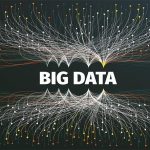If there's anything you can say about the field of cybersecurity, it's that it's growing. By 2019, there will be 6 million new cybersecurity jobs on the market worldwide. This increase is commensurate with the increase in big data, which goes directly with advancements in both the cloud and the IoT. As the world moves closer to 180 zettabytes of data in 2025 (a conservative … [Read more...] about The 6 Biggest Cybersecurity Concerns for 2018
Big Data
Learn everything you need to know about big data. Find out how companies are using this revolutionary technology and what it means for your business strategy.
3 Ways Organizations are Leveraging Big Data Across Different Applications
The origin of the term big data can be traced back to a book by Erik Larson in 1989. However, economists and industry pundits have only started to discuss the impact big data has played in global organisations over the past few years. The impact has been incredible and will be even more significant by the end of the decade. Here are some of the applications brands are using big … [Read more...] about 3 Ways Organizations are Leveraging Big Data Across Different Applications
Big Data, Machine Learning and AI Predictions for 2018
Investment in Big Data and AI shows no signs of slowing down. Here are some of our predictions for the year to come... Automation of human tasks Whilst we're still a far cry from the hyperbolic envisioning of robots taking over our jobs and being cast into a pit of uncertainty, there is evidence to suggest that cognitive technologies are on the rise, and Big Data is helping … [Read more...] about Big Data, Machine Learning and AI Predictions for 2018
Three TedTalk Experts Show Big Data is Far From Perfect
Big data is changing the way we live, think and work. Almost nobody disputes this. Some of the world's largest brands depend on big data, such as Google, which processes over 3.5 billion search queries every day. However, some experts believe many of the predictions on the future of big data have become too outlandish. Several TEDTalks have shed some light on the problems that … [Read more...] about Three TedTalk Experts Show Big Data is Far From Perfect
5 Essential Clues to Achieve Data-Driven Marketing
Long gone are the days when businesses followed the blinded-experiment, where tests were masked and in some cases impractical. It's time to go beyond the old school approach and stop assuming data as output and start considering it as an input. Data is an asset to organise and eventually action the business process from strategy to planning and further product design. "Data … [Read more...] about 5 Essential Clues to Achieve Data-Driven Marketing
What is big data?
Big data is a term that refers to the massive amount of digital data created and shared every day. Big data can transform how we live, work, and communicate. It can be used to improve everything from public health and urban planning to business and marketing.
Big data is also changing the way we think about privacy and security. The volume, velocity, and variety of big data present challenges and opportunities for organizations and individuals. Regardless, big data is here to stay, and its impact will only continue to grow in the years to come.
What is big data analytics?
Big data analytics is the process of turning large, complex data sets into actionable insights. Businesses use various analytical tools and techniques, including machine learning and statistical analysis, to do this.
Big data analytics can be used to improve decision-making in areas like marketing, operations, and customer service. It can also be used to identify new business opportunities and optimize existing processes. With the help of big data analysis, businesses can gain a competitive edge by using their data better.
Want to learn more about big data? Datafloq has courses available. Contact us to get started.
When was big data introduced?
The term big data was coined in the 1990s, with some giving credit to John Mashey for popularizing the term. However, the concept of big data has been around for much longer.
Where does big data come from?
In the early days of computing, scientists and businesses began to realize that the amount of data being generated was increasing exponentially. As a result, they began to develop new methods for storing and processing data.
Over time, these methods have become increasingly sophisticated and have played a key role in enabling businesses to make sense of vast amounts of information. Today, big data is used in various industries, from retail to healthcare, and its importance is only likely to grow in the years to come.
What are examples of big data?
One of the most common examples of big data is social media data. With over 2 billion active users, Facebook generates a huge amount of data every day. This includes information on user interactions, posts, and even location data. Analyzing this data can help companies better understand their customers and target their marketing efforts.
Another example of big data is GPS signals. These signals are constantly being generated by devices like cell phones and fitness trackers. When combined with other data sets, GPS signals can be used to provide insights into everything from traffic patterns to human behavior. Finally, weather patterns are another type of big data set. By tracking these patterns over time, scientists can better understand the impact of climate change and develop strategies for mitigating its effects.
How do companies use big data?
Companies use big data in marketing, product development, and customer service. By analyzing large data sets, businesses can identify patterns and trends that would be otherwise difficult to spot. For example, a company might use big data to track customer behavior patterns to improve its marketing efforts.
Alternatively, a company might use big data to improve its products by identifying areas where customers are most likely to experience problems. For instance, big data can be used to improve customer service by finding pain points in the customer journey. Ultimately, big data provides companies with a valuable tool for gaining insights into their business operations.






